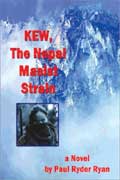 The Maoists' mastery in playing political parties and factions off against each other has helped them mask their own predicaments. We haven't heard of large-scale purges or secret trials in rebel ranks, but there are telltale signs of turmoil. For now, a deepening identity crisis is discernible.
The Maoists' mastery in playing political parties and factions off against each other has helped them mask their own predicaments. We haven't heard of large-scale purges or secret trials in rebel ranks, but there are telltale signs of turmoil. For now, a deepening identity crisis is discernible. The rebels may have lost much of their Robin Hood image, but they still enjoy international recognition as the voice of the voiceless. Western governments are under pressure from their own citizens not to arm the Nepali state against its people. From the Revolutionary International Movement and CCOMPOSA, the Maoists have stepped into the World People's Resistance Movement. In other words, they've become part of the motley crew known as the anti-globalisation campaign.

Some international experts are postulating how a Maoist victory in Nepal would constitute a challenge to Francis Fukuyama's "end of history" exegesis and Samuel Huntington's "clash of civilisations" exposition. Marking a generational shift in the movement's ideological core, Manusi Yemi Bhattarai has been expounding the urgency of making the national anthem more people friendly.
Journalists from around the planet are still fascinated by the most successful communist movement since the death of communism. An assured Krishna Bahadur Mahara goes on CNN to tell the world that his men and women are not terrorists by any definition. The disgust and hate the Maoists have for those who circulate that canard, he maintains, gives them the power to fight on. Hours later, the rebels strike Jumla. Disgust and hate? Plenty. Terrorism? Hmm, depends. When Comrade Prachanda extended a peace overture by pledging his forces would no longer target political rivals and infrastructure, you were sort of prepared for the attacks in Siraha, Udaypur and Kapilbastu.
The disgruntlement among Maoist foot soldiers has been known for a while, considering how every attempt for a safe landing has been aborted. The compulsions of the cadres are clear. Prachanda, Baburam Bhattarai and Mahara may form the government. Circling the Singha Durbar security perimeter for a rare view of them isn't exactly the lads' and lasses' idea of victory.
The political atmosphere wasn't always so antagonistic. True, Sher Bahadur Deuba sought power on a pledge to open peace talks and Prachanda helped by announcing he couldn't contemplate speaking to anyone else. Deuba freed key Maoist figures from prison to ensure they organised a strong but disarmed party in time for the 2004 general election. The premier didn't know the military wing was having such a good time. When Deuba blamed Prachanda for betrayal, the rebel chief, too, was probably overwhelmed by the ruthless turn of events.
Bhattarai dismisses reports of contradictions between the military and political wings of his party as part of a "baseless, preposterous and mischievous" misinformation campaign. "The party commands the gun," he asserts in his essays. The politburo's frequent failure to hold its fire after it said it would provides an objective basis to suggest friction between the political and military fronts.
The imperatives for peace are pressing. On the surface, Bam Dev Gautam's threats of retaliation may sound ridiculous. With international experts on insurgencies hopping in and out of the country, however, who knows when neighbourhood vigilantes, if not right-wing death squads, will start roaming the rural hinterland?
There's a more alarming omen. The Maoist movement and its terrorist link are the plot of American author Paul Ryder Ryan's "Kew, The Nepal Maoist Strain" (http://www.1stbooks.com). Mary "Kew" Carew joins the insurgency to begin political and societal change and to avenge her husband's death from a bomb blast. Rising in the rebel ranks, she captures Michael Donovan, a State Department human rights observer, but loses her heart. As their romance is threatened, Kew is used as a courier to deliver a newly developed lethal anthrax strain to annihilate the American people. Sounds outrageous? So did Tom Clancy's "Debt of Honour" and "Executive Order" before 9/11.
From the Maoists' literature, you get the impression that South Asia is being transformed into one of the most volatile storm centres of the world revolution. And that imperialists and expansionists are trying to snuff out Nepalis' legitimate struggle to end all wars from the face of the earth. Between the lines, you can also feel the comrades' impatience for discarding the T-tag before the US State Department puts them on its roster of international terrorist organisations.


